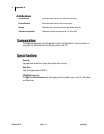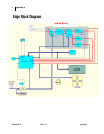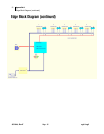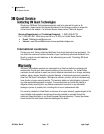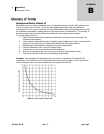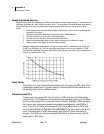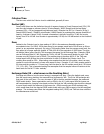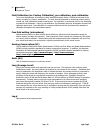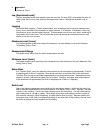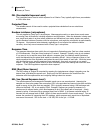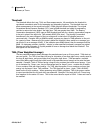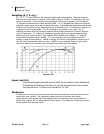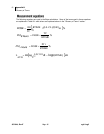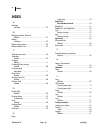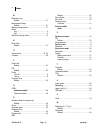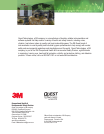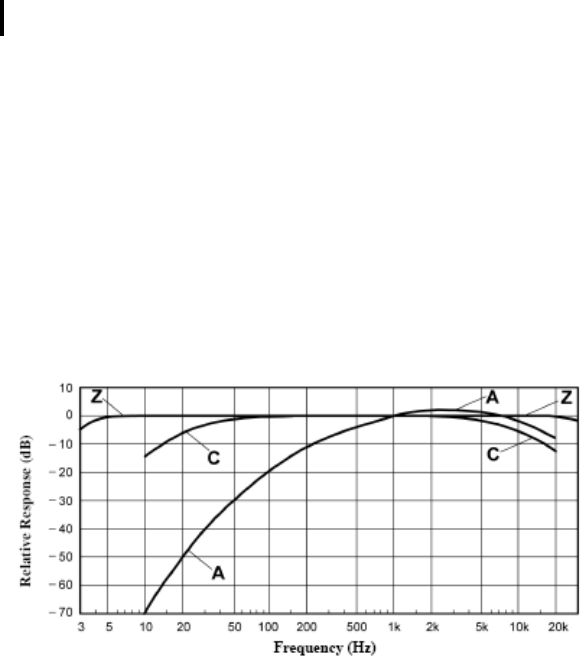
64 Appendix B
Glossary of Terms
053-644, Rev E Page 64 eg4 & eg3
Weighting (A, C, Z, etc.)
“A”, “B”, “C”, “Z” and LINEAR are the standard weighting networks available. These are frequency
filters that cover the frequency range of human hearing (20Hz to 20 kHz). “A” weighting is the most
commonly used filter in both industrial noise applications (OSHA) and community noise regulations.
“A” weighted measurements are often reported as dBA. The “A” weighted filter attempts to make the
dosimeter respond closer to the way the human ear hears. It attenuates the frequencies below several
hundred hertz as well as the high frequencies above six thousand hertz. “B” weighting is similar to “A”
weighting but with less attenuation. The “B” weighting is very seldom, if ever, used. The “C”
weighting provides a fairly flat frequency response with only slight attenuation of the very high and
very low frequencies. “C” weighting is intended to represent how the ear perceives sound at high
decibel levels and is often used as a “flat” response when LINEAR is not available. “C” weighted
measurements are often reported as dBC. “Z” is zero weighting, with no weighting across the
frequency range of human hearing. LINEAR is thought of as having a flat frequency response curve
over the entire measurement frequency range. LINEAR is most commonly found on upper model
sound level meters and is typically used when performing octave band filter analysis.
Upper Limit (UL)
A type of measurement parameter setting in which the user selects a certain decibel level.
The dosimeter will then record the amount of time that the sound level was at or greater
than the preset level. This time is then recorded as “UL Time”
Windscreen
A windscreen is a covering for the microphone that reduces disturbances caused by wind and direct
contact with other surfaces. The windscreen is placed over the microphone when taking
measurements to help prevent false high readings due to wind blowing across the microphone or
objects (hair, clothing, etc.) brushing against the microphone. The windscreen will also help protect
the microphone from dust and debris.



